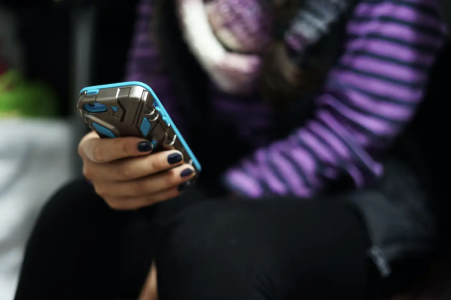SDC Rewards Member
Upgrade yours now
Is 13 too young to have a TikTok or Instagram account?
The surgeon general is the “nation’s doctor” in the United States. They are tasked with giving Americans the “best scientific information” about their health.
Late last month, the current US surgeon general, Vivek Murthy, warned 13 is too young to join social media. He said it poses a risk to young people’s “self-worth and their relationships”, adding:
Is 13 too young? What should parents think about when it comes to their kids and social media accounts?I, personally, based on the data I’ve seen, believe that 13 is too early […] the skewed and often distorted environment of social media often does a disservice to many of those children.
Why are we talking about 13?
Major social media platforms, including Twitter, Instagram, Facebook and TikTok, require users to be at least 13. This includes those in Australia and New Zealand.This minimum age requirement stems from 1998 US legislation which banned the collection of children’s personal data without parental consent.
For many parents, schools and cybersafety experts, this minimum age has become something of a benchmark. Many assume it comes with the implicit assurance social media platforms are appropriate and safe for children once they turn 13. Conversely, they also assume they are unsafe for children under 13.
What does the evidence say?
Social media platforms do present some risks for young people. These include online bullying and harassment, exposure to misinformation and inappropriate content, grooming, privacy breaches and excessive use.Stories documenting the potentially harmful effects of social media are rarely out of the news. Studies claim links between social media and poor mental health and low self-esteem.
These findings are concerning, and there is no doubt social media may negatively affect some young people’s wellbeing. However, it is not a straightforward question.
While these studies might find a correlation or link between excessive social media use and poor self-esteem, for example, they rarely point to direct causation. Young people already experiencing low self-esteem and depression may use social media significantly more than others.
So why don’t we just increase the age?
Murthy acknowledges it is difficult to keep kids off their devices and social media. But he suggests parents band together,But any increase in the age - whether formal or informal – will not necessarily keep children safer online. Children can easily falsify their ages (many already do). And young people are good at finding creative and secretive ways of doing what they want regardless.and say you know, as a group, we’re not going to allow our kids to use social media until 16 or 17 or 18.
Why can’t parents just say no?
It is often suggested – by cyber safety experts – that parents just say no. This message has been reinforced by celebrity commentators such as British actress Kate Winslet, who recently told the BBC:While these approaches may work with younger kids, older children are unlikely to simply comply. Blanket bans and restrictions not only lead to family conflict, but are also more likely to lead to children using social media without parental consent or knowledge.My children don’t have social media and haven’t had social media.
This is a problem because parents play an important role in helping children navigate online spaces, including the sometimes fraught nature of peer relationships on social media.
If a child has a social media account without parental permission, they are much less likely to seek out their parents for help if they have a problem online, for fear of getting into trouble or having their device taken away.
Children also have a right to be online
Discussion about risks also tends to ignore the potential benefits of being online.Social media is incredibly important for many young people. It keeps them connected with friends and extended family, provides a platform for creativity and self-expression, and enables civic participation and activism.
Social media also provides access to like-minded individuals and communities who may provide solidarity and support, especially for marginalised teens.
Children, particularly teenagers, also have a right to participate in online spaces, including use of social media.
The United Nations’ Committee on the Rights of the Child notes children have the right to “meaningful access to digital technologies” as a way of realising the full range of their civil, political, cultural, economic and social rights.
So, when should my child get a TikTok account?
There is no one-size-fits-all approach here. Children vary tremendously in terms of their maturity, skills, life experience and judgement.On top of this, online risk is not equally distributed, as children who are more vulnerable offline are more vulnerable online. For example, children with mental health problems, learning difficulties, a disability or who have problems at home are more likely to experience high-risk situations online.
In deciding whether your child is ready for a social media account, parents might consider:
- Is my child especially vulnerable to online harms?
- Does my child have the required maturity and resilience to manage potentially negative online social interactions?
- Does my child listen to advice and follow rules?
- Is my child aware of the risks, and do they have strategies for managing them?
- Will my child come to me with any problems they encounter online?
Start talking early
The best thing that parents can do is initiate conversations about social media and the internet early and often.Many issues that play out on social media are extensions of young people’s existing peer relationships. Parents can talk to their children about their friends and peers, show an interest in their child’s online activities, and openly discuss their child’s rights and responsibilities online.
Some parents may wish to set reasonable expectations and rules about appropriate use of social media. Documenting these expectations through a “family technology agreement” that is negotiated democratically as a family, rather than through top-down rules, is more likely to succeed.
This article was first published on The Conversation, and was written by Catherine Page Jeffery, Lecturer in media and communications, University of Sydney







